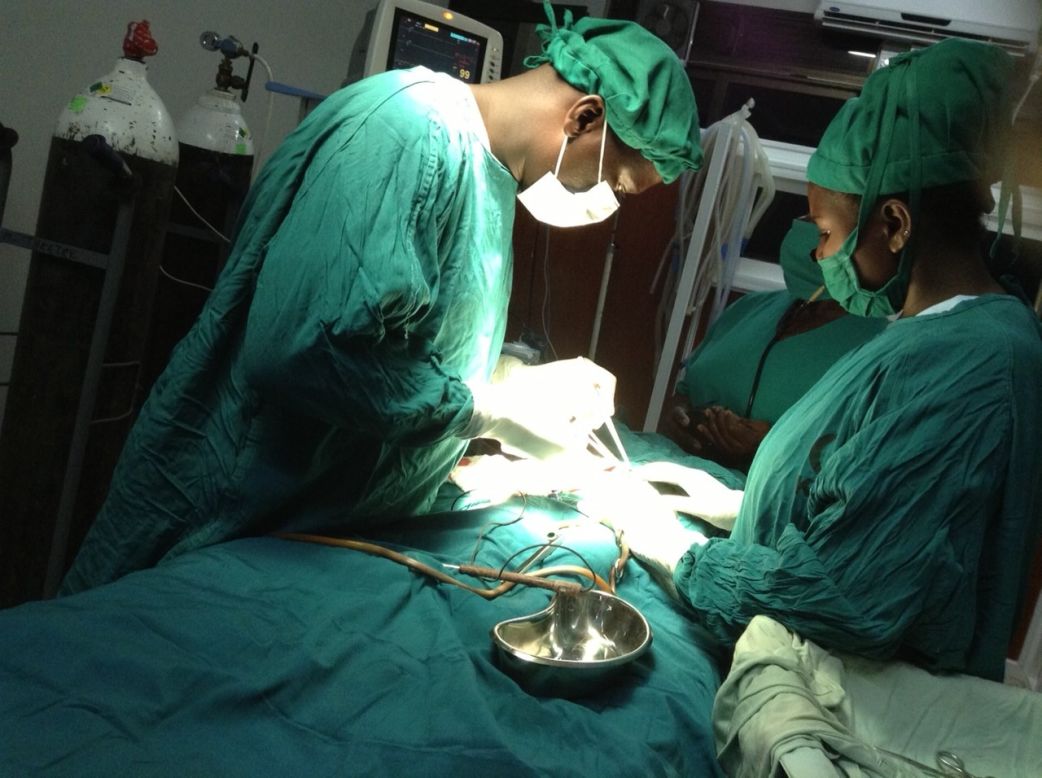If you have an upcoming surgery scheduled, it is common to feel anxious or scared. Tomophobia, the fear of medical procedures, is reported to be experienced by up to 92% of the world’s population, which comes as no surprise, as undergoing an invasive medical procedure can be daunting for even the bravest individual. But do we really need to fear undergoing an op? The answer is no.
Preoperative stress can actually have a negative effect on postoperative recovery, says Dr. Henry Ddungu, a medical expert and spokesperson for the World Thrombosis Day (WTD) campaign. It can result in heightened pain, longer recovery periods, and prolonged bed rest, all of which increase your risk of developing thrombosis.
To help lessen your fears, Dr. Ddungu recommends that you inform yourself of any risks associated with a procedure and talk to your doctor about the procedure. “A very real risk that all hospitalised patients – especially those facing prolonged immobility – should be aware of is venous thromboembolism (VTE), also known as blood clots. It is a startling fact that up to 60% of all VTE cases occur during or within 90 days of hospitalisation, making it a leading cause of death and disability,” he says.
What are the risk factors?
While there are many factors that can contribute towards the development of thrombosis, being in the hospital is a major risk factor. This is because patients with decreased mobility due to bedrest or recovery, or who experience blood vessel trauma due to surgery or other serious injury, are more likely to develop blood clots.
Your medical history and lifestyle habits also play a big role in an increased VTE risk, as do certain medical procedures, such as orthopaedic, urological, and cardiothoracic surgeries. Major peripheral vascular, gynaecological, and general surgery – especially involving the abdomen, pelvis, hips, or legs, neurosurgery and, in fact, any surgical procedure with a duration of more than 45 minutes also bear an increased risk.
The good news, says Dr. Ddungu, is that VTE is often preventable and evidence-based prevention strategies can stop the development of clots in ‘at-risk’ individuals. According to the Centers for Disease Control and Prevention (CDC), as many as 70% of cases of VTEs are preventable through measures such as the use of blood thinning medications called anticoagulants, which help prevent blood from clotting. Yet, states the CDC, fewer than half of hospital patients receive these measures.
If you, or a loved one, are due to undergo any of the above procedures, Dr. Ddungu recommends that you should adopt a proactive approach and ask your doctor for a VTE Risk Assessment before the operation, and whether you are a candidate for anticoagulants. A VTE Risk assessment is a questionnaire that gathers information about your age, medical history, medications, and specific lifestyle factors, which is then used to discern your potential risk for blood clotting.
What other questions should I ask?
“Ask your healthcare practitioners as many questions as possible about the procedure you are having done, any risk factors associated with it, and what the aftercare, and recovery period is. It will give you knowledge and help allay any fears you may have,” says Dr. Ddungu. Regarding VTEs, he recommends that you ask:
- What is my risk of developing a blood clot?
- Please conduct a VTE risk assessment.
- What can be done to lower my risk?
- Will I be given some type of blood clot prevention while at the hospital, and when I leave?
- What are the warning signs or symptoms of a blood clot?
- What should I do if I develop any warning signs or symptoms?
What can be done if I am at risk?
Individuals who are deemed ‘at-risk’ should be given appropriate prevention, referred to as “prophylaxis”, which can include anticoagulants and mechanical devices (compression stockings, intermittent pneumatic compression devices or rapid inflation venous foot pumps).
“Your doctors will also assess your bleeding risk to know if you are fit for a pharmacological prophylaxis anti-clotting medication, otherwise, you will be placed on a mechanical device,” says Dr. Ddungu. “Hospital patients may also be instructed to move around or do foot and /leg exercises as soon and as often as possible.”
To help improve patient safety, the WTD Day campaign also advises that “every hospital worldwide should establish and enforce a VTE protocol. Protocols may vary by institution and country but should include a VTE risk assessment that is tied to proper prevention and treatment guidelines.”
Do you have a story in your community or an opinion to share with us: Email us at Submit an Article









